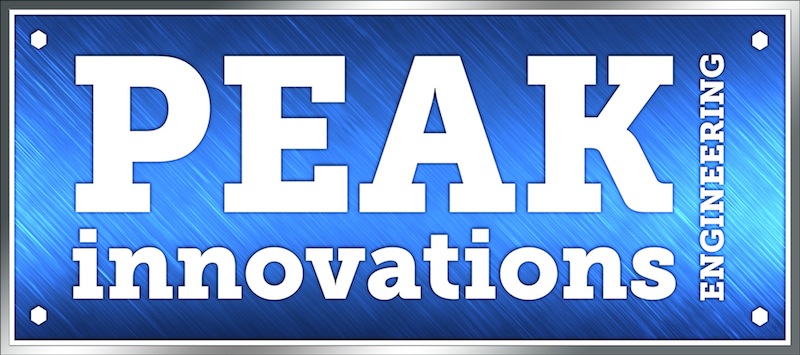Loads may be applied to bolted connections in various ways, with each way producing different effects on the joint. Some of the different load types include shear, tension, and bending. At Peak innovations Engineering, our bolted joint design team is able to enhance the bolted joints in your product or structural application through high quality testing and validation.
Shear Joints
With these bolted joints the load is applied at 90-degree angle to the axis of the fastener. Shear joints fail when the members of the joint shift past each other sideways and cut the bolt. In bearing type shear joints, the strength of the joint hinges on the bolt’s shear strength. During the assembly of bearing type shear joints, having the fastener secured in the assembly is more important than bolt tension.
Some shear joints resist slippage through the initial clamp load. This necessitates sufficient frictional force between members of the joint. These shear forces must be greater than the clamp load friction, which usually exceeds the fastener’s shear strength.
Tension Joints
The forces on a tension joint and its bolt are virtually parallel to the axes of the bolt and work to pull the joint apart, stretching and separating the joint, which adds stress to the bolt. The bolt functions as a clamp in a tension joint. When the nut and bolt are tightened, tensile pre-stress is produced which is equivalent to the compression stress applied to the joint. The operation and longevity of a tension joint depends on the tightness of the clamped bolts and the length of time they will retain the preload. An incorrect clamping force can lead to various types of failures, such as loosening from vibration, bolt fatigue, stress corrosion cracking, and hydrogen embrittlement.
Bending Joints
These bolted joints have been subjected to a bending force that results in tension and shear load applied to the fastener. This combination loading can significantly affect the strength and operation of the joint. Therefore, exceptional care should be given to these joints.
For the bolt testing you need to ensure your fastener joints function as required, look no further than the testing and analysis services we offer at Peak innovations Engineering. Call us today at 815.420.3802 or use our contact form to drop us a message.

